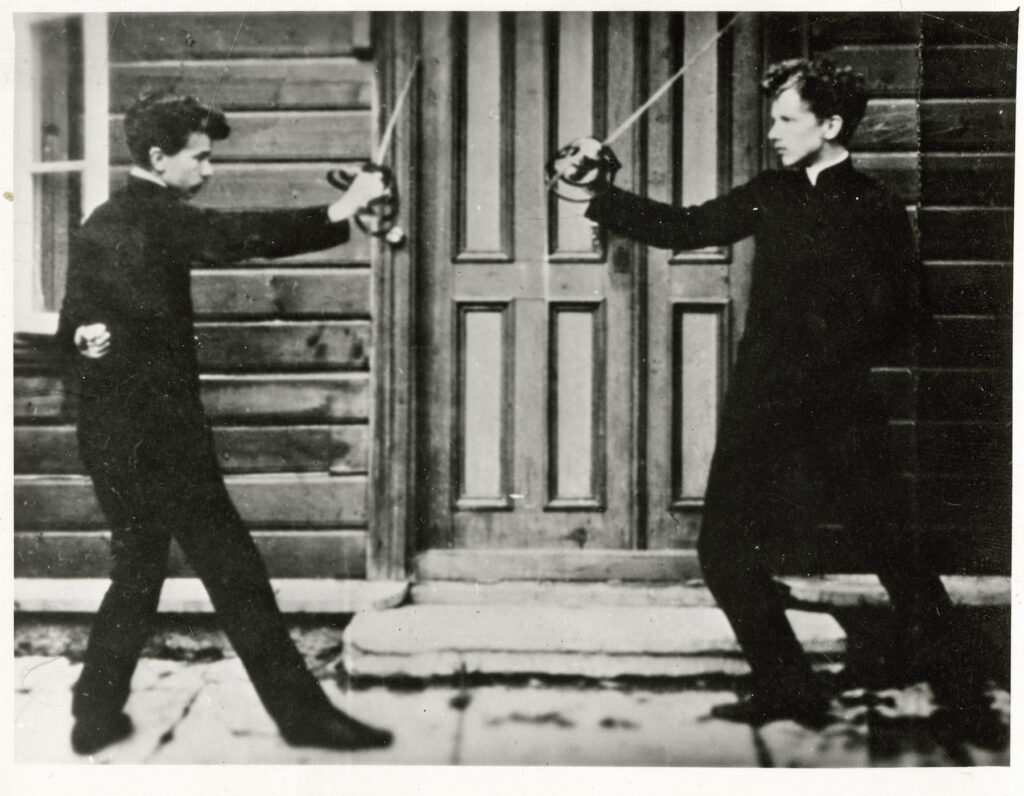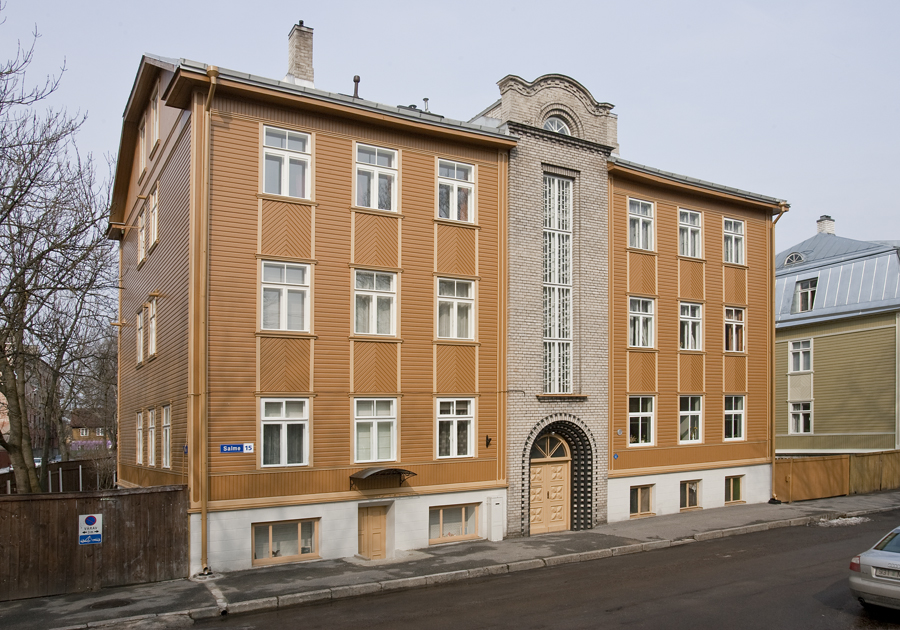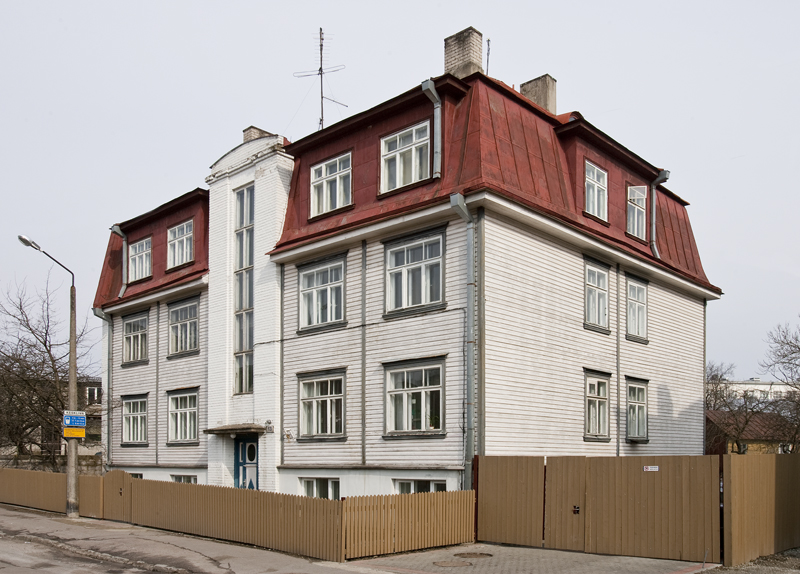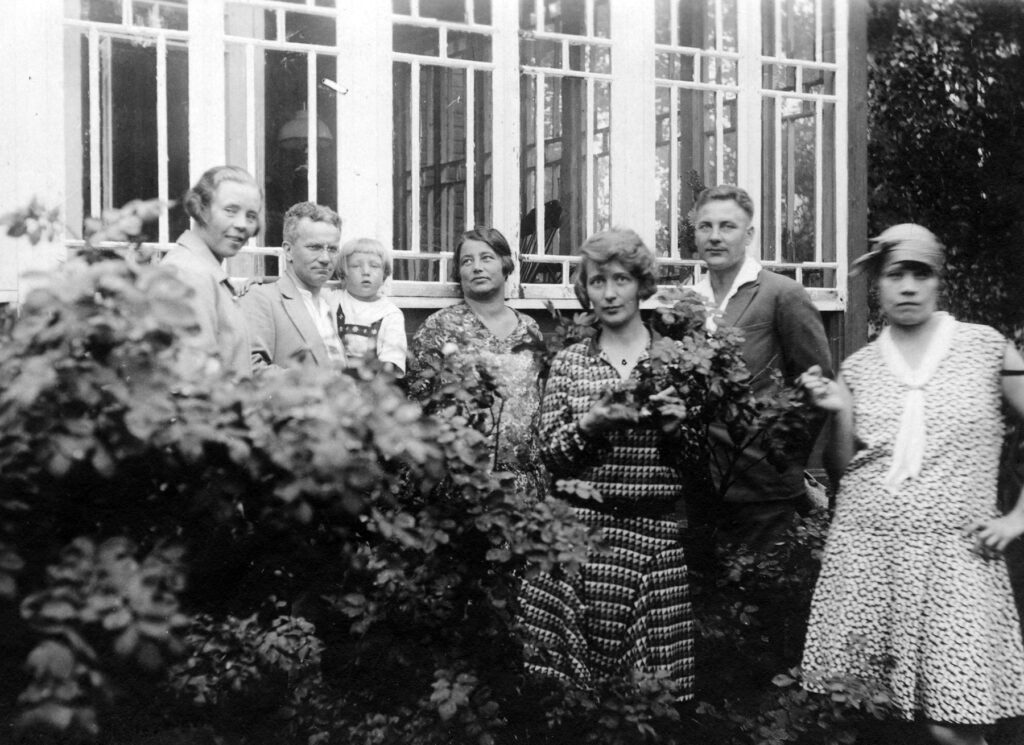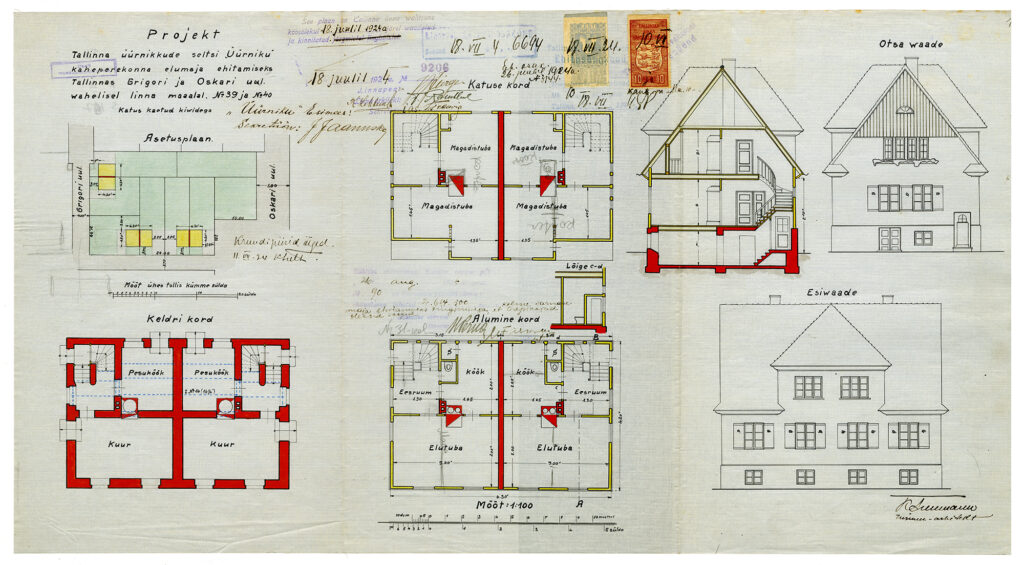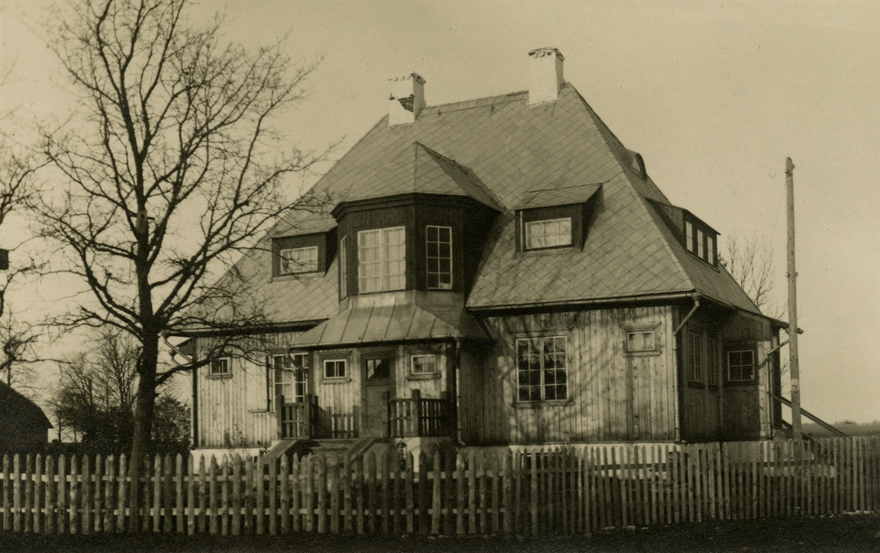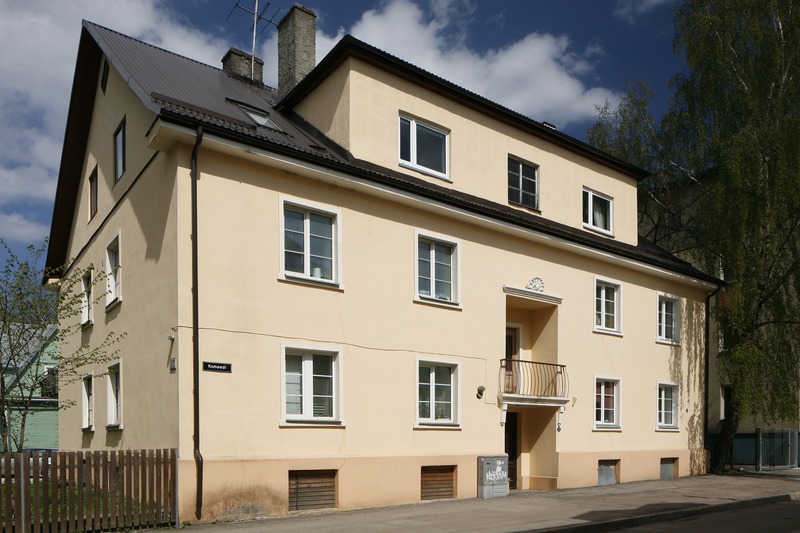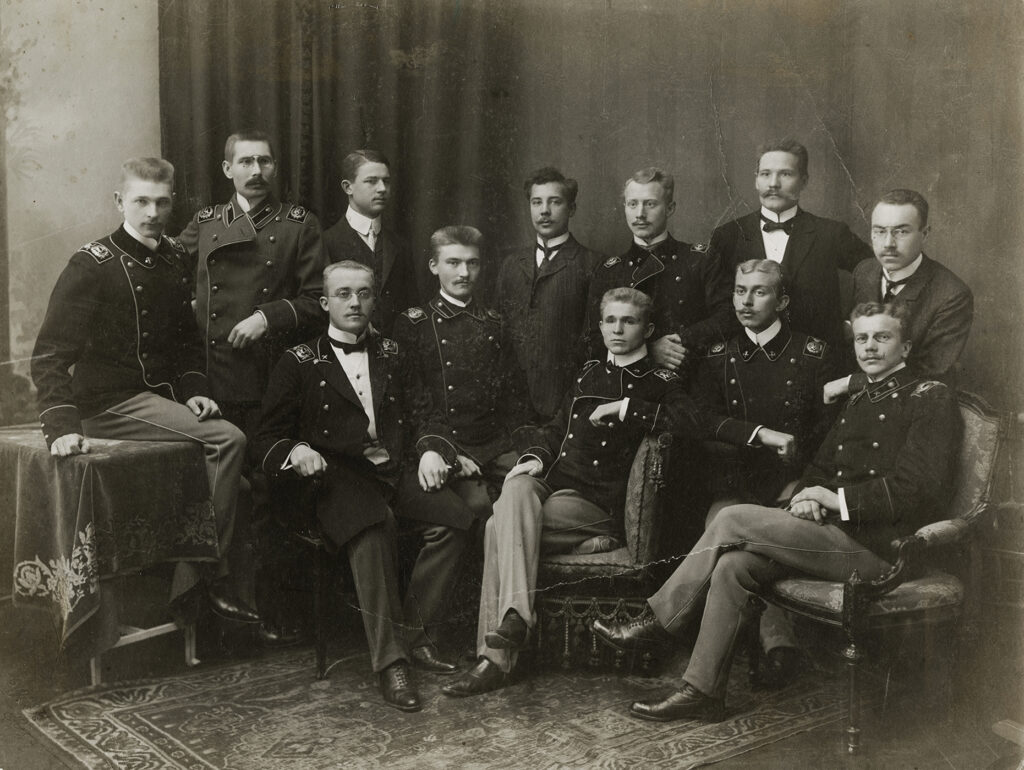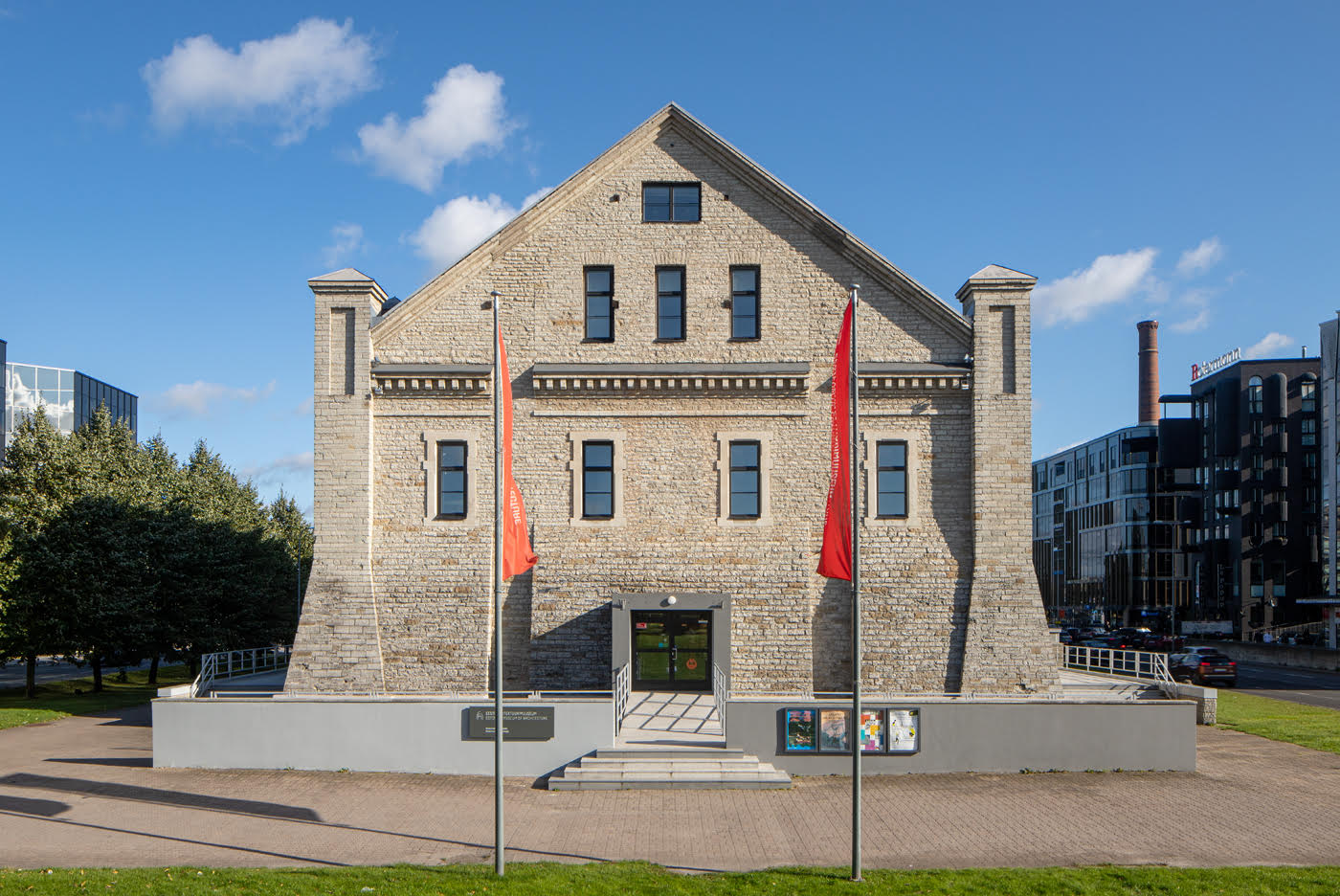- Karl Tarvas was interested in photography. Photomontage of the two Karls in front of their home on Endla Street in Tallinn, ca. 1906
- “Tallinn-type” house at Salme St., Karl Tarvas. Photo: Peeter Sirge
- “Tallinn-type” house with a central stone stairway at 13 Magasini St., Karl Tarvas. Photo: Peeter Sirge
- Karl Tarvas in Loksa, in the cottage of land surveyor Evald Hacker with the Sepp family. Karl Tarvas, second from left, with his son Pärtel, ca. 1927.
- Apartment building commissioned by a tenants’ association
- House of the veterinarian in Raasiku
- The 8-apartment building was built according to the design of Karl Tarvas, who won the Soviet Estonia Prize in the competition for standard houses in 1947, Karl Tarvas
EAM fond 40
EAA 100 / Karl Tarvas
The creative legacy of Karl Tarvas (Treumann, 1885–1975) significantly shaped the residential architecture of Tallinn’s suburbs in 1920–1940. During the interwar period, he devoted himself to the less prosperous course and to improving the living conditions of the tenants by designing wooden apartment buildings to can be built quickly, the most known which is characteristic of Tallinn houses. These buildings with a timber framework with stone staircases were built by smaller entrepeneurs with a help of favorable state construction loan. The owner usually lived on the spacious apartment on the first floor of the building and rented out remaining 2-3-room apartments. In the second half of the 1930s, Karl Tarvas designed stone apartment buildings according to the state’s plan to make Tallinn’s city center more representative. In the 1920s, before founding his office, Karl Tarvas worked as an architect in Harju County and took care of the construction of rural school buildings, departments and other public buildings. His three sons also chose the profession of architect, the most known of the three is Peeter Tarvas (1916–1987). More about Karl Tarvas’ studies at the Riga Polytechnic Institute in 1906–1915 and his latest work can be read from the articly by Sandra Mälk in the collection of the Riga Technical University (RTU Scientific Journal, 2021/5): https://hesihe-journals.rtu.lv/article/view/HESIHE.2021.004/2824
Karl Tarvas was one of the 15 architects who founded the Estonian Association of Architects in 1921, which is the predecessor of the Estonian Association of Architects.
(klick on the picture to see more illustrations)




